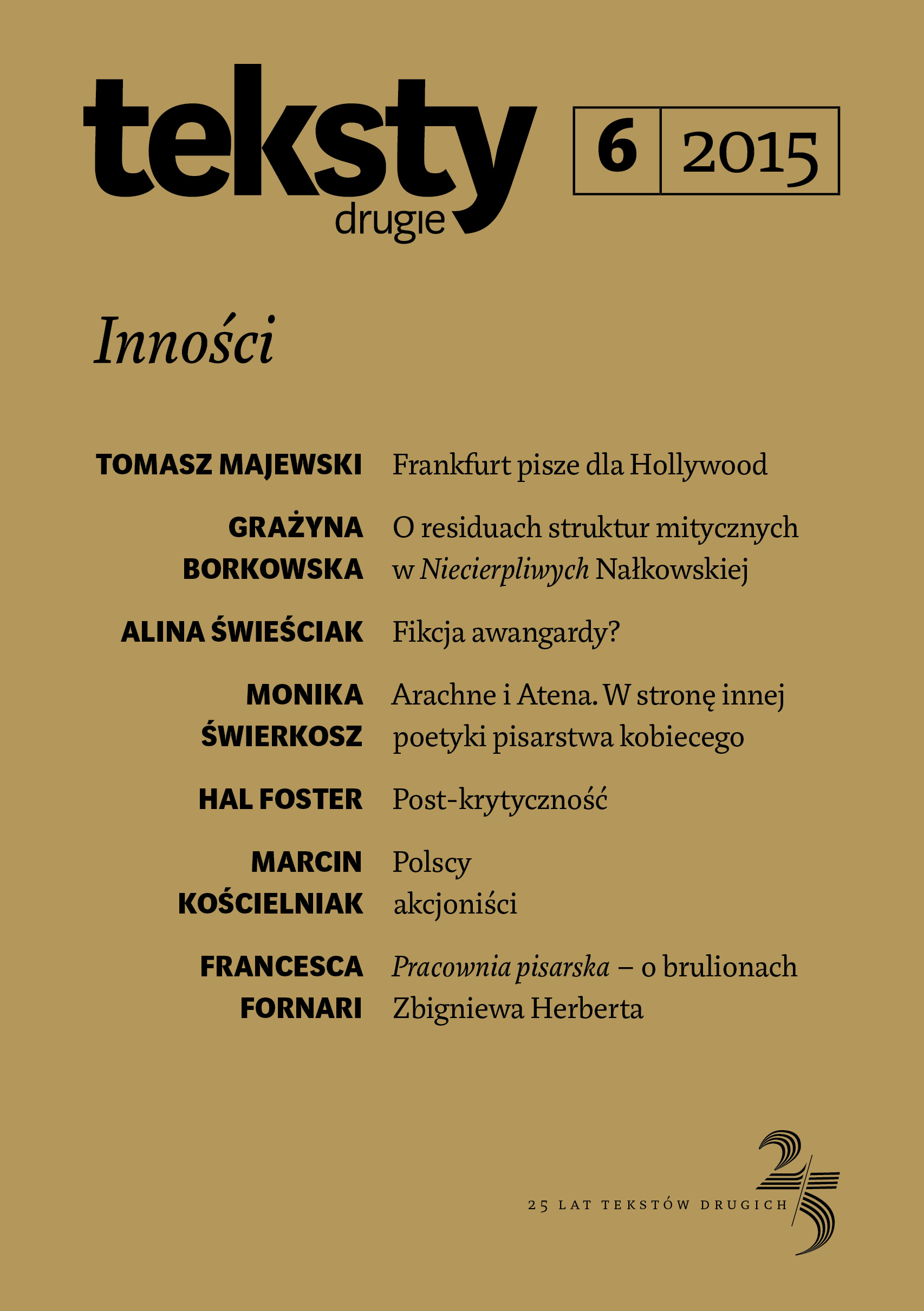
Zbłąkany Eros? Freud i mesjański witalizm
Review: Agata Bielik-Robson Erros: Mesjański witalizm i filozofia [Erros: Messianic Vitalism and Philosophy], Universitas, Cracow 2012
More...We kindly inform you that, as long as the subject affiliation of our 300.000+ articles is in progress, you might get unsufficient or no results on your third level or second level search. In this case, please broaden your search criteria.

Review: Agata Bielik-Robson Erros: Mesjański witalizm i filozofia [Erros: Messianic Vitalism and Philosophy], Universitas, Cracow 2012
More...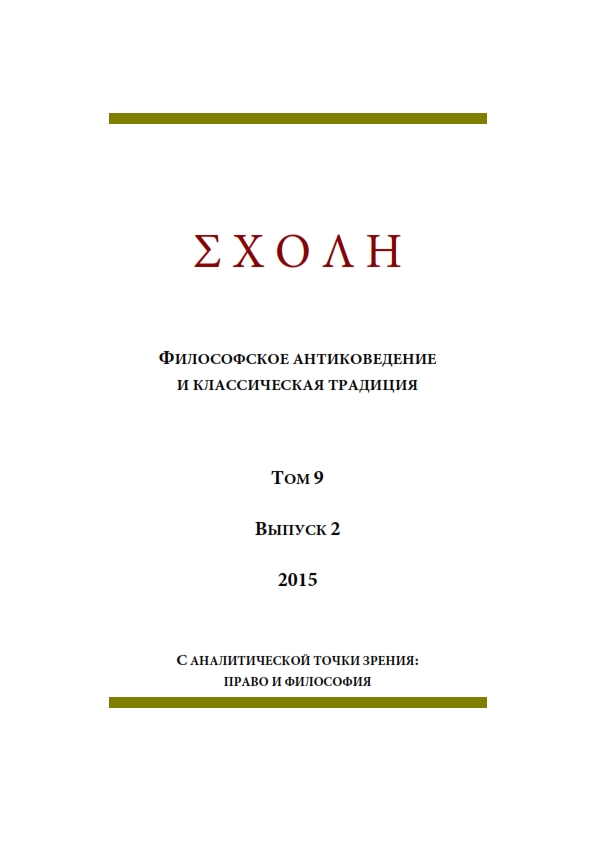
This article focuses on the role of the ancient Greek tragedy in the formation of a speculative philosophy. The author argues that the tragedy model is a prototype for the Schelling’s and Hegel’s speculative metaphysics. Its dialectical structure acts as the general means of resolving the philosophical contradictions between dogmatism and criticism, freedom and necessity, the subjective and the objective. The speculative system restored the identity of freedom and necessity through conflict. The comparative analysys of the idealistic “philosophical tragedy” and ancient Greek tragedy revealed their deep internal relationship. Based on Szondi, Lacoue-Labarthe and Bataille, the author argues that the speculative tragedy, based on the principles of Aristotle’s theory of catharsis, and the mimetic nature of dialectical thinking are closely linked with the poetics of the tragic action, recreating the ritual forms of sacrifice.
More...
Sophists and rationalists that constitute the foundation of enlightenment philosophy, who were named as first age proponents of the enlightenment, must be mentioned before we talk about 18. Century’s “Enlightenment Age” thinkers. Sophists, who are B.C. V. and IV. Century thinkers, placed the human at the center of their philosophic thoughts therefore nature philosophy was brought to second place of importance in Greek philosophy and human philosophy obtained the first place. Sophists, the thinkers of Greek enlightenment, followed the way of filtering everything with their minds against the traditional Greek thinking based on beliefs. Protagoras who said “Man is the measure of all things”, Gorgias who said “Nothing exists; even if something exists, nothing can be known about it; and even if something can be known, knowledge about it can't be communicated and explained to others”, Antiphon who said “Naturally we are all created same in everything” and Thrasymakhos who said “Justice is the advantage of the stronger” and Kallikles who had ideas that remind “Übermensch” doctrine of A.D. 19. Century thinker Nietzsche are the most significant representatives.
More...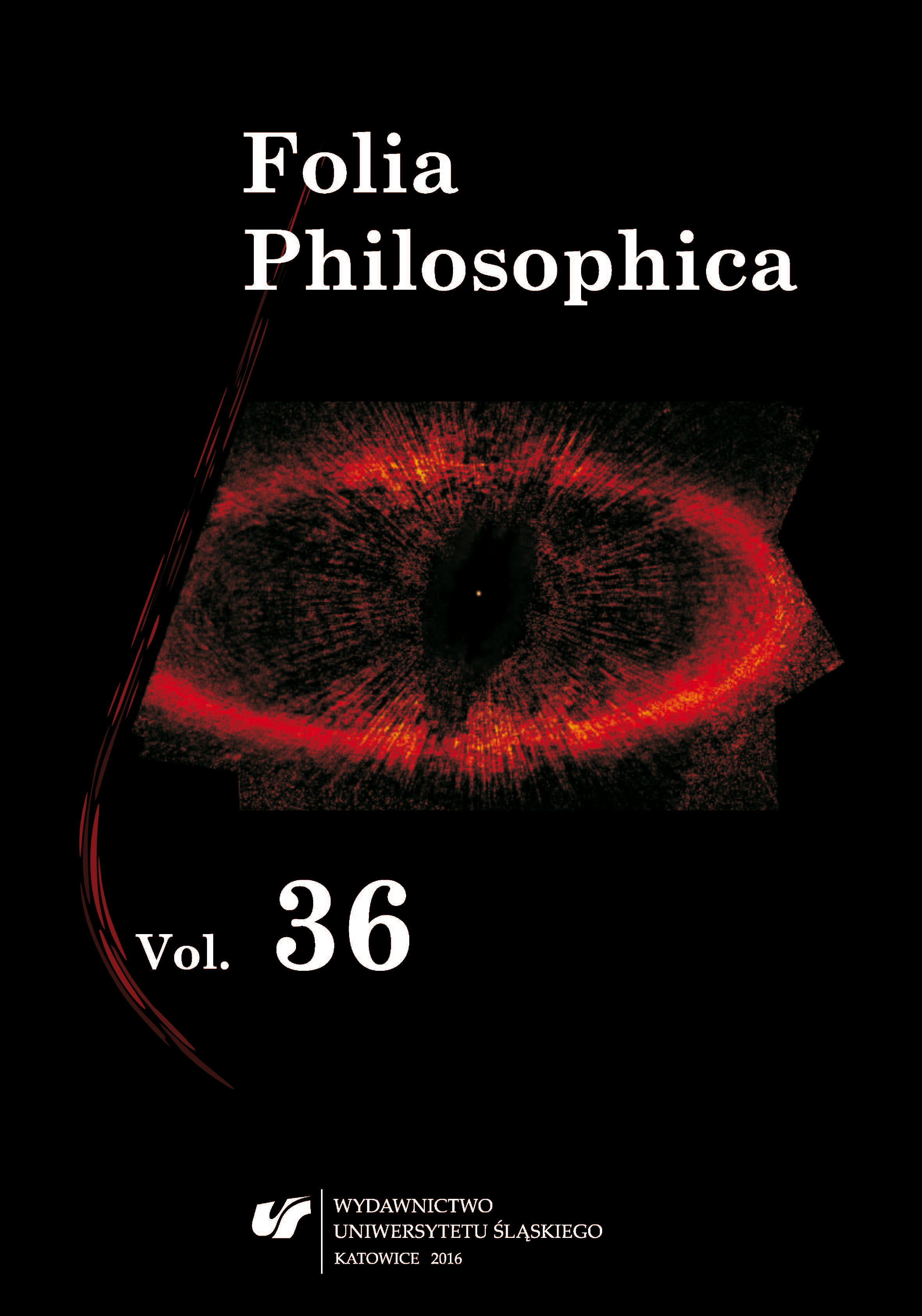
In 1904, Paul G. Natorp (1854—1924) published his lectures on general psychology. This article shows that this purely philosophical, yet systematic work describes those issues of psychologism and psychology which would prove most important to the intellectual life of Europe at the turn of the century, and which Natorp interprets in accordance with the provisions of transcendental philosophy. From the perspective of a representative of the Marburg School of Neo-Kantianism, he outlines the philosophical profile of the subject and the method of psychology. He focuses his discussion on the problem of understanding consciousness and highlights the following elements: the content of consciousness, the consciousness of Ego and the relationship between the content of consciousness and the conscious Ego. His analysis is performed from the bottom up (physiology), depicting the mechanics of the operation of the human nervous system. The article addresses the question of the critical interpretation of Paul Natorp’s general psychology, with emphasis on cognitive and relational functions of consciousness (Bewusstsein).
More...
Makale, ünlü sufi ve düşünür Celalaeddin Rumi’nin XIX yüzyıl Azerbaycan düşünürü A. Bakıxanov’la ilgili edebi konuların ilmi tahlilini konu edinir. Yazıda, Azerbaycan’dakı ilim adamları ve eleştirmenlerin konu ile ilgili düşünceler üzerinde durulmuş, A. Bakıxanov’un eserlerinde Mevlana’dan yapılmış alıntılar tespit edilmiştir. Her iki düşünürün eserlerinde konu, yapı ve didaktik amaç bakımından benzerlikler araştırılmıştır. Manevi sansür karşısında Bakıxanov’un Mevlana sanatından nasıl faydalandığı üzerinde durulmuştur.
More...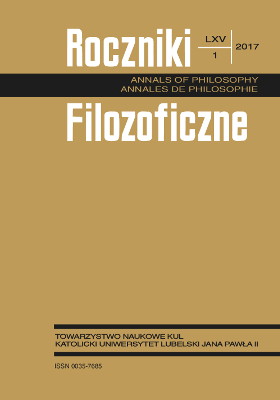
This article interprets Eckhart’s contradictions by presenting them as a result of an existential search for salvific power. It is shown that power is ambivalent in nature: it is the power of what is and the power of (self)overcoming (of what is). Just because power is in itself ambivalent and the process of searching for it existentialist (so not completely conscious), Eckhart’s mystical texts are full of contradictions and the German mystic is apparently not aware of it. The sample of them is shown in this article with regard to his ideas on God and man. Three other interpretations of Eckhart’s (“apophatic,” “educational,” “methodological”) are presented and argued against.
More...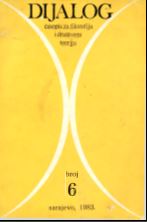
Lektira njemačkog idealizma — poglavito Hegela, Schopenhauera i Kanta — koju sugerišu Horkheimerovi tekstovi koji obilježavaju nastupanje prve Kritičke teorije ostaje, bar prividno jako, ovladana utjecajem jedne epistemologije koja se još nije istinski distancirala prema marksizmu. Otuda ≫simptoma tsko≪, filološki malo zadovoljavajuće čitanje djela. Jedino razjašnjavajući takvo čitanje koje dovodimo u vezu sa teorijskim projektom koji je izradio Horkheimer tokom tridesetih godina moguće je zapaziti značenje u njemu i ≫istinu≪ u hegelovskom smislu.
More...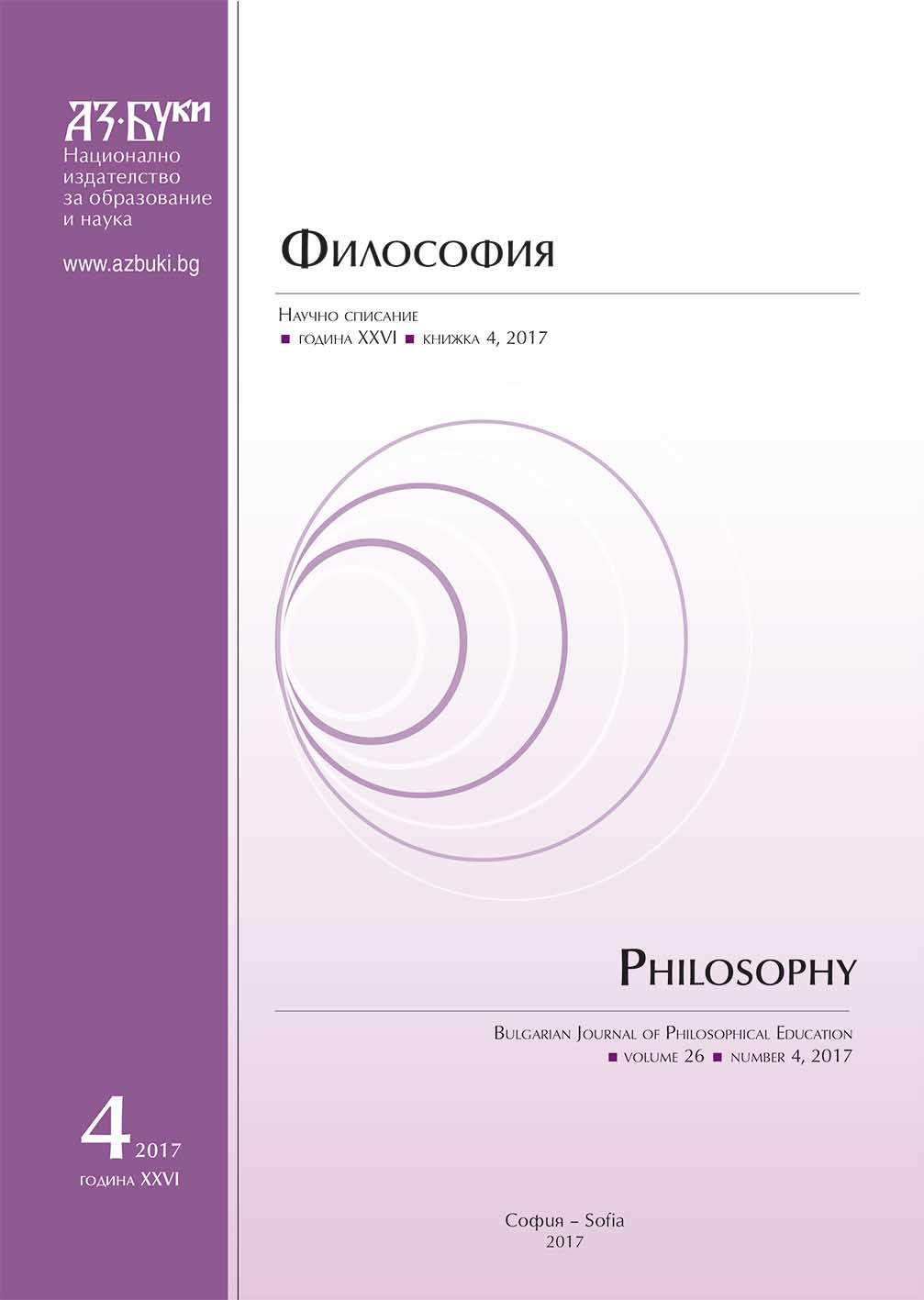
This article discuss the relationship between stoicism, scepticism and unhappy consciousness in Hegel’s “Phenomenology of Spirit” and George Byron’s play “Cain”. The Byron’s biblical hero Cain, a son of Adam and Eve, raises a number of philosophical questions and like Hegel’s concept of scepticism, revolt against the established heavenly norms and laws. Through the knowledge that comes from Lucifer and like Hegel’s unhappy consciousness, Cain reaches the self-consciousness for himself.
More...
This statue will pose the question for the truth beyond language constituents in its defining and achieving and from this point toward its modeling grounded above all on cognitive parameters. The concrete solution will be searched concerning Wittgenstein’s conception, offered in Tractatus Logico-Philosophicus, for the “truth-conditions” of a proposition in logical space as its “representing relation” and for the way through which the proposition structures logical space. We will search whether this will be a legitimate version of a “logic of truth” in the sense of Kant, and which elements of Kantian logical project can be applied for the division of logical space for the cognition of an object and its cognitive dislocation in logical universum, exactly from the point of view of the whole cognitively and objectively formed universum. How we can outline the approaches, the algorithm of a “real-objective” calculation of the object value in the logical space.
More...
Vladimir Solovyov has his own unique presence in the philosophical discourse of beauty and love. His endeavor to achieve integrity and completeness in the reincarnation of nature and man is reflected in the presented article.
More...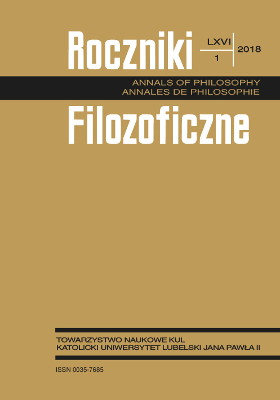
The article presents Kant’s and Husserl’s philosophies with reference to Hartmann’s understanding of irrationality. In Hartmann’s metaphysics of cognition, irrationality, which corresponds with partial unknowability of being, appears to be an argument against idealism that assumes a complete rationality of our knowledge and its object. In this article the author shows that it is possible to indicate similarities between Kant’s idea of the unknowability of the transcendental object, Husserl’s conception of the transcendental constitution of the world, and Hartmann’s concept of gnoseological irrationality. In Kant’s transcendentalism, irrationality implies an asymmetry between the conditions of the possibility of experience and the conditions of the possibility of the objects of experience, because the unknowability of a transcendental object and a thing in itself indicates that not all conditions of the objects are at the same time conditions of the possibility of experience. According to Husserl, transcendental subjectivity is not a sufficient reason for the world in its Dasein and Sosein, because the fact of the constitution of the world is an irrational one and it cannot be derived from the essence of subjectivity. The author tries to demonstrate that this analogy between Husserl and Hartmann, in the question of the irrationality, opens new interpretational possibilities for the relation between transcendental phenomenology and Hartmann’s philosophy.
More...
The author of the article focuses on the origins of the idea of panopticon in Classical Antiquity. Though the point of departure is the concept of the panopticon as an architectural structure, for example, a panoptic prison or factory, as envisaged by Jeremy Bentham in the late 18th century, the author, seeking to trace the beginnings of this idea in the ancient Greek culture, treats the concept of the panopticon both in the broadest possible sense and in that sense which might be viewed as a direct anticipation of the modern (Benthamian) concept of panopticon. First of all, in the first chapter of the article, starting with the analysis of the words “panoramic” and “panoptic”, the author draws attention to the fact that both these words, strictly speaking, are of a rather late coinage (though the adjective panoptēs, employed as an epithet of some gods and other mythological beings, is already attested in the corpus of Classical literature), yet each of them has two easily recognizable Greek roots: the meaning of the first one, namely, pan-, is “all”, and the meaning of the second one is “visual, optical”. After discussing some subtle semantic differences between the meanings of the words “panoramic” and “panoptic”, the author briefly presents a few examples of Greek mythological narratives illustrating the “panoptic” abilities of some divine beings. In the second chapter of the article, the author discusses the varieties of “panoramic” and “panoptic” phenomena (as well as certain “panoramic” and “panoptic” aspects of some other phenomena) in Classical Greek philosophy, mainly focusing on the philosophical importance of vision and visuality in Greek experience and theoretical thinking, as well as on some specific “panoramic” and “panoptic” features inherent in the ancient Greek world-outlook and general mindset. By way of the examples drawn mainly from the works of Plato and Heraclitus, but also from such fields as mythology, geography, and architecture, the author presents an argument for the close affinity, interrelationship, and interdependence between the logocentric and optocentric traits in Greek experience, philosophical thought, and general mindset. The “panoptic” character of Classical Greek culture is analyzed not only in terms of the conceptual and experiential interrelationship between the optocentric and logocentric traits in Greek world-outlook, but also from the point of view of the hypothetically reconstructed everyday experience of ancient Greeks. A few examples from the works of Plato and Heraclitus are presented in order to demonstrate the existence in the ancient Greek thought of those aspects of Greek “panoptic” phenomena that might be viewed as direct and rather exact anticipations (replete with all necessary judicial references and connotations) of the modern concept of panopticon as envisaged by Jeremy Bentham. At the end of the article, the author draws a conclusion that, despite the absence in the ancient Greek language of the word “panopticon” as a precise technical term with contemporary meaning, various approximations to the contemporary concept of panopticon, including both vague intimations and very close anticipations of the modern concept, already existed in the culture and mental landscape of Classical Antiquity. It is also very important to observe that the ancient Greek correlates of the modern concept of panopticon were imbued with a much broader spectrum of philosophically significant meanings.
More...
This article is devoted to the conception of spiritual cognition which is analyzed as synthesis of theological and philosophical researches in the context of archimandrite Innokentiy’s creative work. His real name was Ivan Borysov and he was a representative of Kyiv spiritual and academic philosophy of the beginning of the 19th century. It has been found out that the scientist’s understanding of structural and functional aspects of cognitive activity is in close connection with moral theology, with elements of Christian anthropology and with theological metaphysics in the system of Orthodox culture.
More...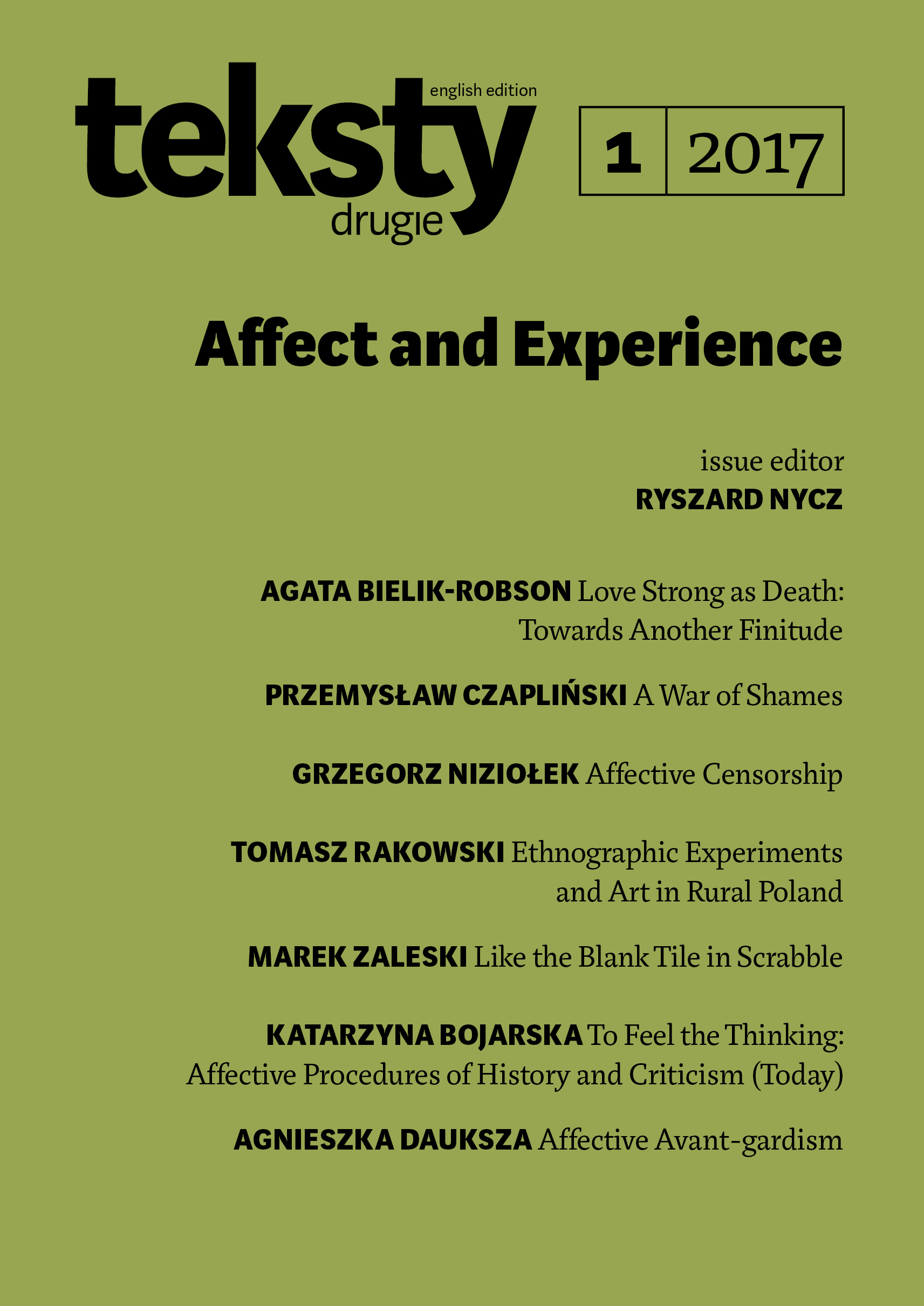
Author of this text is trying to examine several examples of interaction between literature, other fields of discourse and social imagination. This review is focused mainly on French classicism and rationalism, nineteenth Century fiction and Darwinism, modern literature and so-called antihumanism and finally - some contemporary tendencies.
More...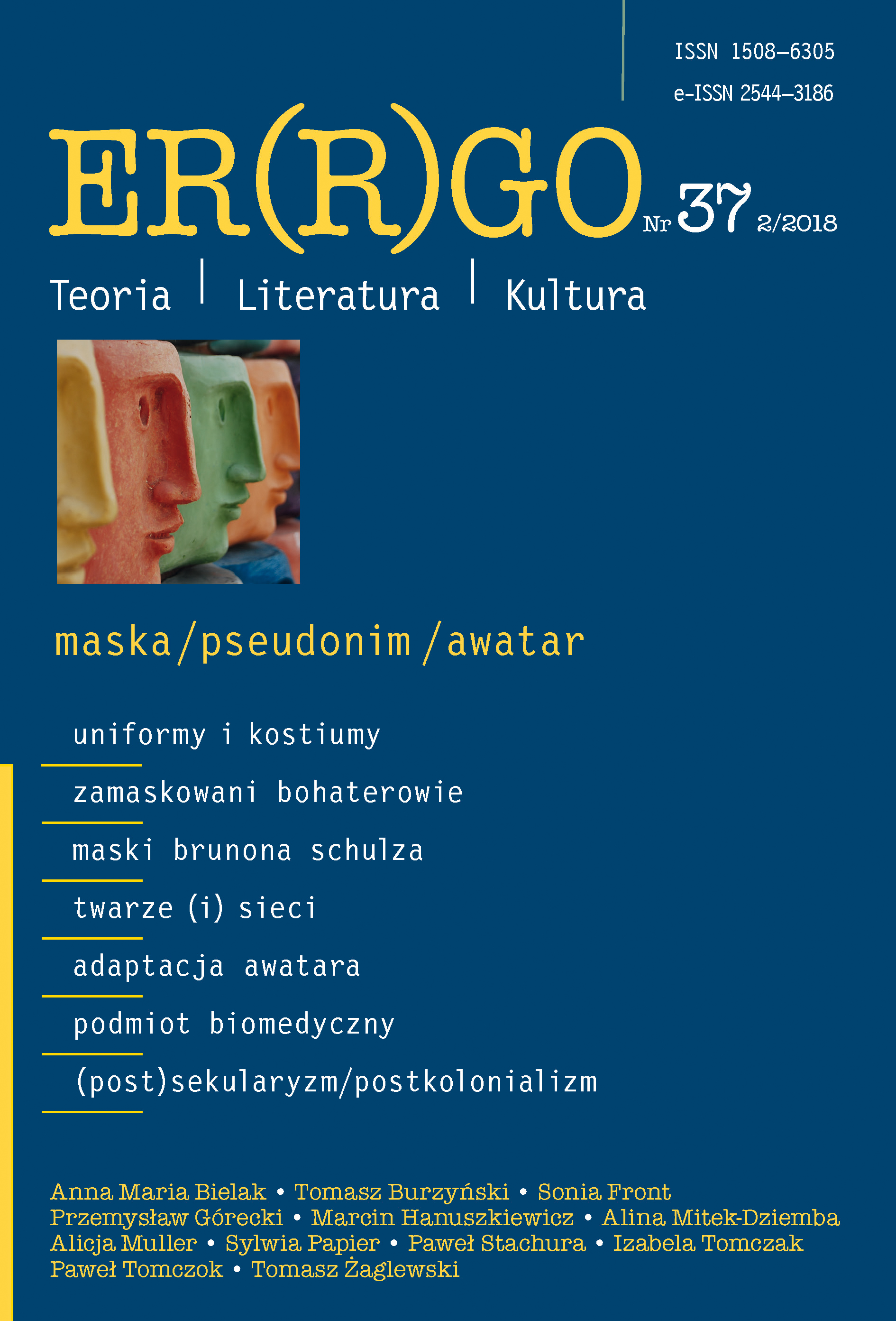
The article discusses possibilities of character building in computer games, which for many gamers is a way of expressing and modifying their own identity. Games differ in the degree of freedom given to a gamer in shaping the identity of the in-game character, or avatar, and in many games avatar-formation is an important part of game structure, providing a lot of game satisfaction, and requiring as much time and involvement as the game-play itself. The games under discussion are adaptations of H.D. Thoreau’s „Walden”. The choice of games stems from the observation that identity, freedom, and limitation are important themes of Thoreau’s work, which is reflected in the games under discussion. The three games discussed in the article are, thus, treated as modernist and postmodernist readings of a literary text, giving the reader/gamer more or less limited possibilities of shaping the character/avatar.
More...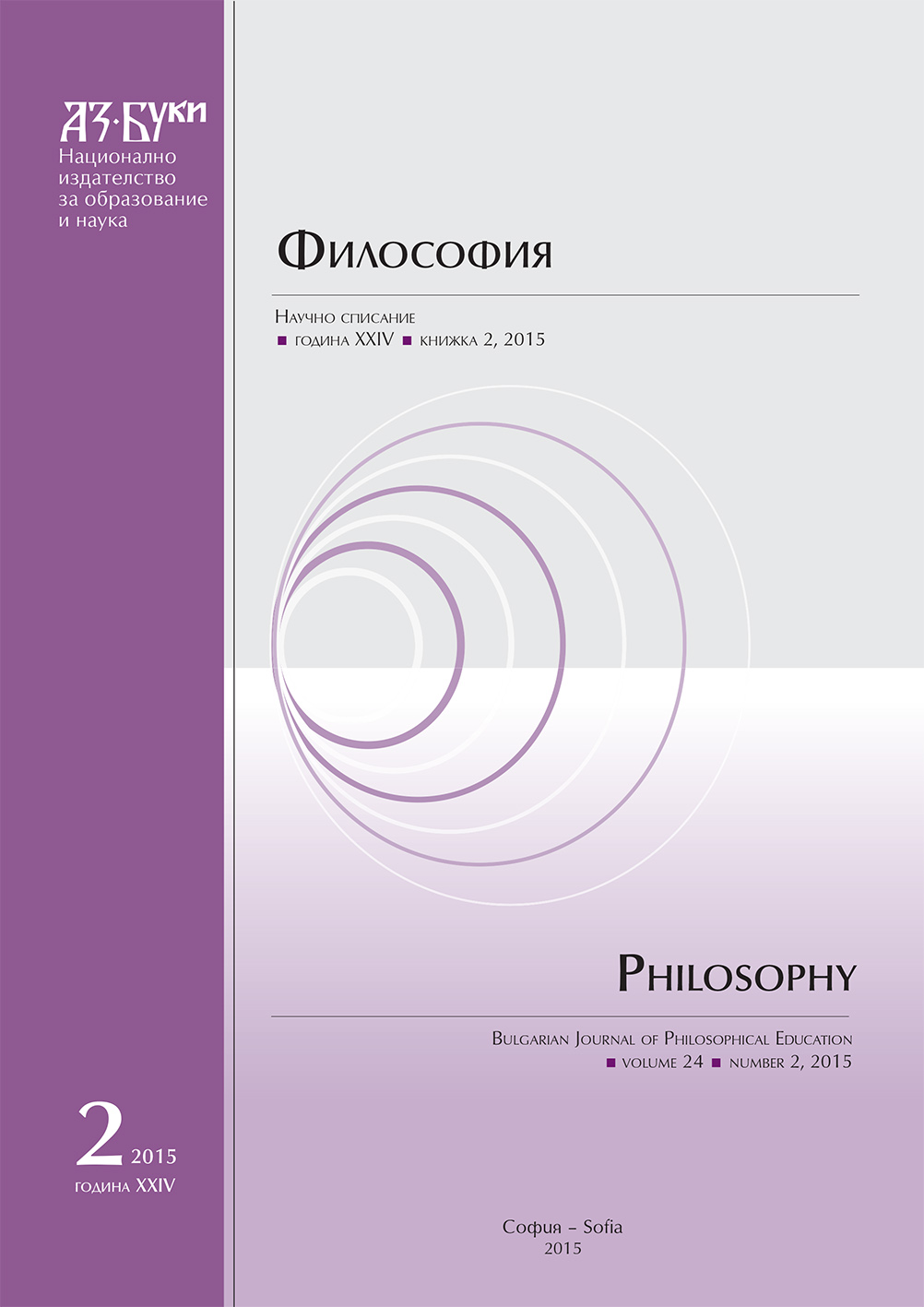
In the wider sense, the concept of philosophical anthropology covers all views on the nature and essence of man since the remotest antiquity, whereas in its narrower associations it points to a philosophical discipline and a conceptually diverse movement that differentiated itself in the first half of the 20th century, joint together by the intention to define the foundations and spheres of man’s own being. It is considered to have formed upon the philosophical reflections of M. Scheler, H. Plessner, E. Rothacker, etc. Many scholars, however, have failed to recognize the fact that a number of the basic principles developed later on in the different views on man, were, for the first time, already to be found in a complex form and in the highest degree in the philosophy of L. Feuerbach.
More...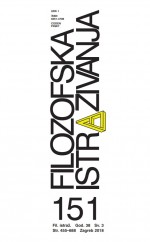
Johann Gottlieb Fichte in his work The Closed Commercial State (1800) argued for economic autarky as the next reform of protectionism. German-American economist Friedrich List published The National System of Political Economy (1840) which is considered to be the “Bible of protectionism”. List was the opponent of Adam Smith’s theses on the importance of free trade and international market. The advocate in a shift from open to closed economy is actual in the globalized world, which is determined by growing inequality and other social and political anomalies. Protectionism is imposed as a possible response to the discontents of globalization. The paper attempts to answer if there is a link between global capitalism and economic nationalism, and how are left and right political parties related to that possible link. Recently, in the days of political dissatisfaction, the alternative between left and right positions is replaced by the opposition between system and anti-system or protest parties. While system parties are criticized for keeping a status quo of neoliberal agenda, protest parties slide into nationalism and populism.
More...
The marked 100-year anniversary of the establishment of the Faculty of Theology in Bulgaria in 1923 highlighted new tasks and defined some main priority directions for research by setting some important strategic goals in the field of research, systematization, documentation and popularization of the scientific creativity of researchers in the field of Systematic Theology. Efforts to research and systematize the main directions in the field of Dogmatic theology, Patrology, Christian ethics, History of religion, Philosophy and psychology of religion, Non-religious confessions and Inter-Christian dialogue, problems of sectarianism have emerged as an important priority in the studies that have continued over the last decade. Different Christian and non-Christian religious teachings, which were always deeply connected with the teaching and spiritual mission of the Church and the challenges to Christian scientific thought and higher theological education in Bulgaria throughout the twentieth century, are explored in systematic and comparative perspective.
More...
Trying to outline a system of Christian theology suitable to the rationalist and scientist approach of the Enlightenment, refractory to the idea of "transcendent", Friedrich Schleiermacher founds his own theological system in cosmic perfection, in the perfection of the Universe, taken as a whole. Cosmic sanctity replaces the sacred transcendent God of traditional theology. The divine external to the world is replaced by the divinity intrinsic to the Universe, which bestows it perfection. In this theological background, religious experience, salvation of man can no longer signify a relation to a transcendent God, but embracing a broader perspective, vast enough to include cosmic sacredness. Spirituality is no longer achieved by ascension but by expansion, an expansion comprehensive enough to incorporate the divinity of the Whole. Sanctification represents the approach by which man himself restores his natural predisposition towards the connection to cosmic harmony, without being assisted, in his endeavour, by any external divinity.
More...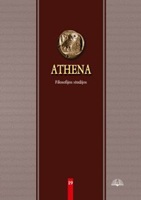
The paper examines Ernest Renan’s notion of the nation as an everyday plebiscite which draws on the post-Enlightenment idea of rational and free persons who make a social contract. A person as such does not belong to anything, but decides to belong to a nation and belongs to it on the grounds of a resolve made by will and (or) passion. Renan articulates a nation’s resolve to be by metaphoric juxtaposition with an existential resolve of a person, with the Nietzschean world of ja-sagen. Both these decisions cover all the three dimensions of the existential time: past, present, and future. Radicalising Renan’s thought, decisions must be understood as not only of the present, but also as of the present in the past and of the present in the future. The paper complicates this resolve by confronting Renan’s ideas with the problematics of the “difficult heritage”, guilt, and responsibility. These issues are elaborated in the field of the dramatic and tragic history of Lithuania: the fate of the Lithuanian diaspora, Holocaust, the annexation of the Klaipėda region, collaboration with the Nazi and Soviet regimes. Pushed in this way, Renan’s notions turn out especially relevant to current debates.
More...